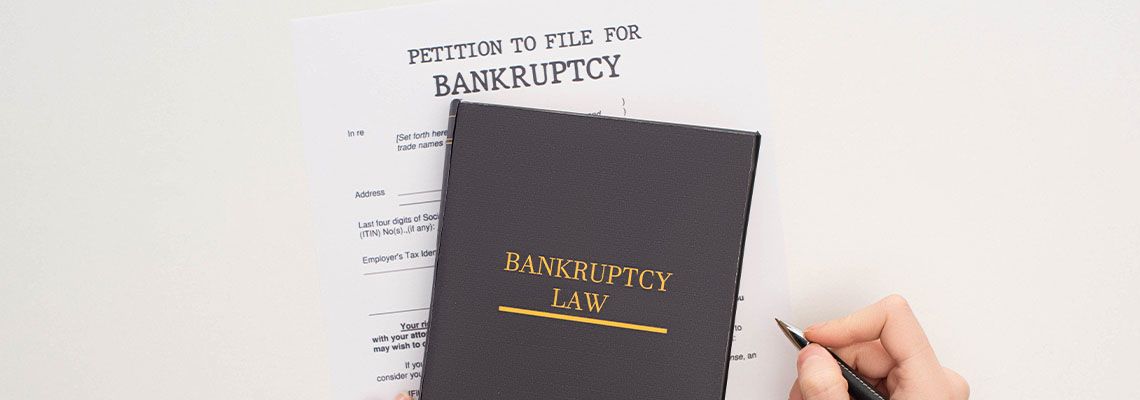
When Is Filing Bankruptcy a Good Option?
Nobody looks forward to the day when they have to file for bankruptcy, but in most cases, this will be the best decision to help get your finances back in order. Recently, the amount of bankruptcies in California has actually dropped with the number of filings in the Northern District steadily declining over the last five years, from a high of 8,656 in 2018 to 3,902 in 2022, according to the US Bankruptcy Court. Still, it may be the right choice for you, and it can be hard to know just when to start this process.
One common question we get from clients is, “When should I consider filing for bankruptcy?” The answer will be different for everyone, and the best way to evaluate your specific situation is to meet with an experienced bankruptcy attorney.
If you’re in the San Francisco, Santa Clara County, Oakland, Daly City, South San Francisco, or San Mateo, California area, contact us at the EH Law Group to schedule a consultation. We have everything necessary to focus on your best interests.
Assess Your Current Financial Situation
The first step in this process is to thoroughly assess your current financial situation and look at all your options for debt relief. You’ll need to make a detailed inventory of all your money coming in and the money you owe. This should list all earned income and any other sources of income you currently have, as well as all your regular debt obligations. This could include rent or mortgage, utilities, tuition, car payments, credit card debt, student loan debt, personal loan debt, child support, alimony, or medical debt. You should have a clear understanding of exactly how much debt you have and how much you can reasonably be expected to pay each month.
One requirement of declaring bankruptcy is proving you are unable to meet your debt obligations, and this must be presented with detailed documentation. Another question you should ask yourself is how often creditors are contacting you about your debt. The longer and more often they’re calling you, the more likely it is you should file for bankruptcy.
Understand Your Bankruptcy Options
For individuals, there are two main options for filing: chapter 7 bankruptcy and chapter 13 bankruptcy.
Chapter 7 is also referred to as “liquidation bankruptcy” because it requires you to liquidate your non-exempt assets to pay off debts before any other debt can be discharged. However, the vast majority of chapter 7 filers won’t have many assets that require liquidation. To qualify, your income must be below the median income of a household your size, and most consumer debt will be discharged, such as medical bills, credit card debt, past due rent, personal loans, or past due utilities.
Chapter 13 is also called a “wage earners plan” because it’s intended for those who earn more than the average median household income and those who can afford to pay back some of their debts. This type of bankruptcy also allows individuals to keep their assets and instead set up a three to five-year repayment plan that they must adhere to. To discharge debt with this plan, you must stay current on all your payments and pay them in full. After this, any remaining dischargeable debt will be wiped out. Like chapter 7, eligible debt can include student loans, credit cards, medical bills, past due rent and utilities, or personal loans.
Know Which Debts Won’t Be Forgiven
Regardless of which chapter you choose to file, there’s some debt that is not dischargeable, even after you sell off assets or complete a repayment plan. One of the biggest is any debts involved in family law, such as child support or alimony. Two other large categories of non-dischargeable debt are student loans and most taxes. In some cases, you may be able to discharge certain income taxes that are over three years old and meet other criteria under the bankruptcy code.
Consider Your Assets That Could Be Affected
The major consideration when choosing between chapter 7 and chapter 13 is which assets could be affected by liquidation. In general, for a chapter 7 filing, you’ll have to sell off (liquidate) any non-exempt assets before a judge will approve your bankruptcy claim. However, you’ll be able to keep any essential assets which often include a vehicle that you use to get to and from work or school and your home. In some cases, though, these won’t be exempt.
For example, if you own your home and have considerable equity, you may be forced to sell. Or, if you own multiple cars or your main vehicle is considered a “luxury” car, you may not be able to keep it. In most cases, you’ll be able to keep your pension and retirement funds, but you should always consult with an attorney first about this.
Know Your Options
For more help deciding whether or not filing for bankruptcy is a good idea for you, contact our team at the EH Law Group in San Mateo, California, to learn about your options. We have the resources, knowledge, and experience to lead you toward the correct path.
